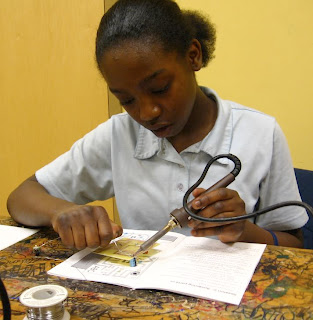
I am participating in the One Post Challenge over at Sean's blog Tactical Philanthropy. The one post challenge is an opportunity to generate new conversations about philanthropy and the blogger with the most comments wins a grant for the charity of their choice. If my post wins the grant will go to the Park Avenue Foundation. The Park Avenue Foundation is an amazing organization that provides kids with great opportunities to meet their full potential. I am always amazed when I first meet kids from their programs because they seem like your average overachievers (smart, funny, great community volunteers) but then you dig a little bit deeper under the surface you find out that they are dealing with issues that most adults couldn't handle like a parent in prison, not having enough food to eat, and the most unstable living situations that you can imagine. I wrote an article about the need for foundation staff to spend time in the community to ensure that they are connected to the community issues that they are making decisions about. Spending time with kids from Park reminds me of why I got into the nonprofit sector in the first place. I get to support organizations every day that help reach kids when they are the most vulnerable and also when they have the greatest opportunity to make positive changes that will make their lives forever better.
So get out there and leave a comment already and tell your networks to do the same. You have until the end of November to make sure that the future engineer that you see above will continue to have a soldering iron in her hand rather than a remote control.